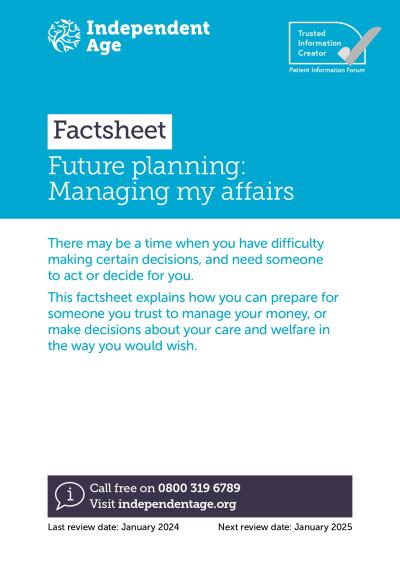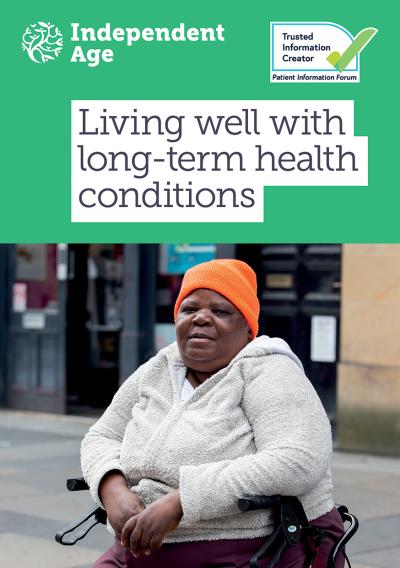Related publications

Future planning: Managing my affairs

It’s good to be prepared before going into hospital. Knowing what to expect can make the experience much less stressful. Look up on information before you get there and think about things you might want to take with you.
You should have been told the details of the treatment or procedure you’ll be having. If the hospital stay is planned, you should receive an admission letter with information such as:
Make sure you’ve read and understood the letter. Contact the hospital if there’s anything you’re unsure about and let them know if you have any special needs or require a translator.
You may also be asked to attend a pre-admission assessment with a doctor or nurse before your admission. This is a good time to ask any questions. If you aren't offered one of these, or have any more questions later on, make a note of them so you can ask staff when you arrive at the hospital. If you’ve been admitted to hospital in an emergency, you can still ask the staff on your ward if you have any questions or need help.
If you need help getting to the hospital, speak to your GP or the healthcare professional who referred you to hospital to find out what transport might be available from the hospital or from local charities.
You might find it useful to make a checklist of things to take with you. Here are a few suggestions:
Try to avoid taking valuable items, such as jewellery, in case they go missing.
If you’re receiving any benefits, you'll need to get in touch with the office that pays your benefits. You need to contact them twice - to let them know:
This is because some benefits stop being paid after a while if you’re admitted to an NHS hospital. Your State Pension won’t be affected.
Personal Independence Payment, Disability Living Allowance and Attendance Allowance stop after you’ve been in hospital for 28 days. If someone gets Carer’s Allowance for looking after you, this will also stop after you’ve been in hospital for 28 days. Your carer should make sure they contact the relevant benefits office. Your benefits will restart when you return home.
If the person you’re caring for will need respite care while you’re in hospital and recovering afterwards, you should contact your council’s adult social services department to ask for a care needs assessment for them. Let the council know if the situation is urgent or if your hospital stay is unplanned – they may arrange a temporary care package for the person you care for until a full assessment can be arranged.
If the person you care for already receives help from the council, emergency plans should be included in their care and support plan. Check that these plans are still up to date and relevant.
Once you’re in hospital, you should be able to ask staff questions about your treatment and raise any concerns you have with them. You should be told who your consultant and named nurse are. The staff on the ward may seem busy, but you should be able to ask for help if you need it.
If you don’t think you’re getting the answers you need, you can speak to the hospital’s Patient Advice and Liaison Service (PALS).
If you find it difficult to ask questions or understand information and you don’t have a relative or friend to support you, you may be able to get help from an independent advocate. For more information, see our free factsheet Helping you get your voice heard: Independent Advocacy.
There are certain procedures the hospital staff should follow when discharging you. For more information, see our webpage Leaving hospital.

If you’re a carer who is going to hospital and you need to arrange respite care for someone you’re caring for, see our webpage on respite care.
By calling Independent Age's free and impartial Helpline, you can get information and advice from one of our friendly advisers, or order our free guides.